Universities Have Been Doing Trump’s Work for Him
The University of Chicago, despite its free speech reputation, has laid the groundwork for the president’s threats against students who protest for Palestine.
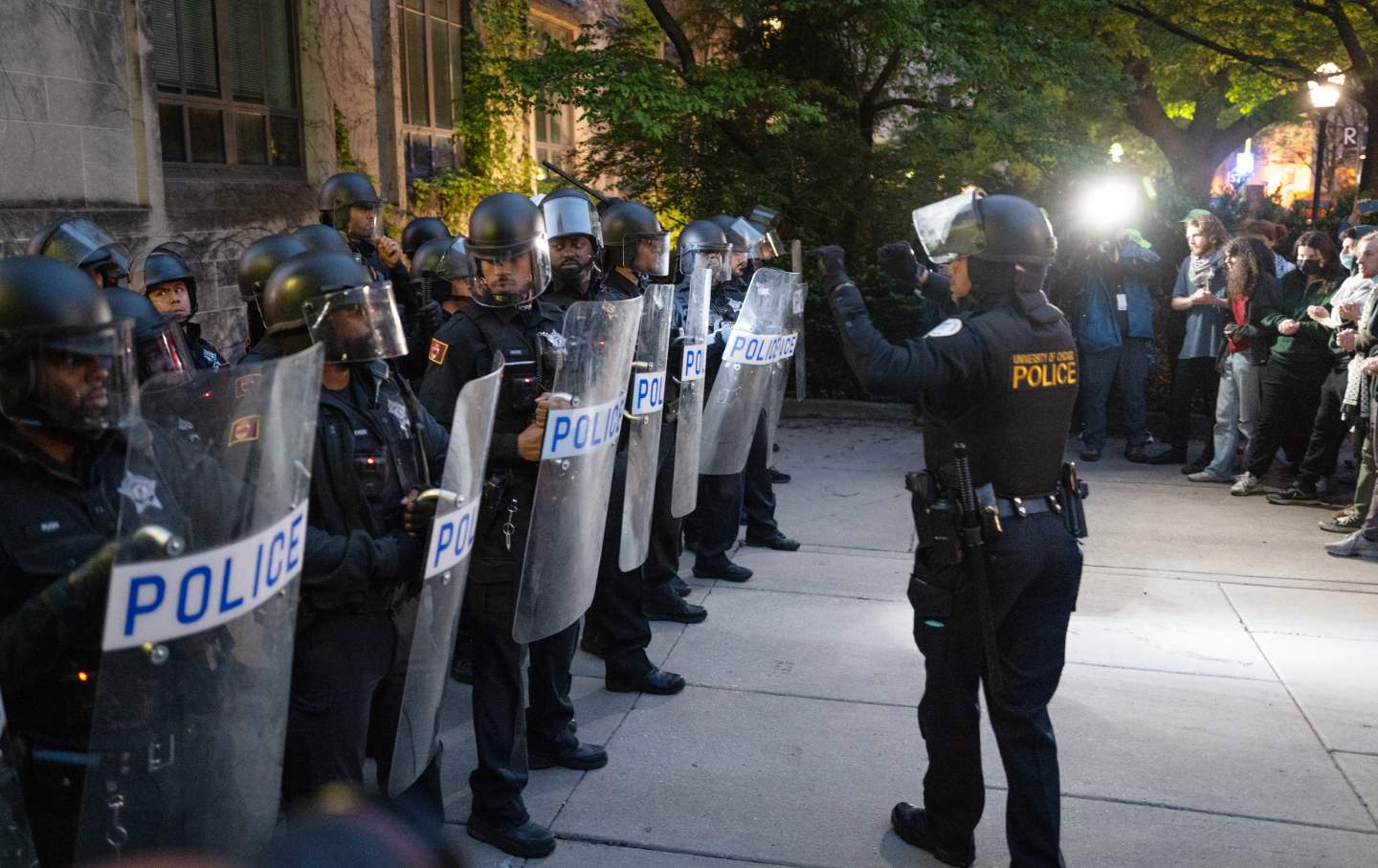
University police on the University of Chicago campus as they break up a pro-Palestinian encampment.
(Scott Olson / Getty)
Afew hours before Yom Kippur began last October—when I and other Jews abstain from bathing until sundown the next day—I was pepper-sprayed. After several shots directly in my eyes, I held a temporarily disabled protester with one arm, leaned on my cane, and pulled us both out of the crowd. Reaching safety, I had minutes to scrub the chemical residue from my arms and soothe my inflamed throat and lungs before the sun set. I had kept my mask on out of fear of being recognized, which left me with a chemical burn across my face. I woke the morning of Yom Kippur with burning skin still hot to the touch.
Pepper spray has been banned for use in war for nearly three decades, but not at University of Chicago or the campuses across the country during the protests against the Genocide in Gaza.
On October 11, demonstrators hung a banner across the main entrance to University of Chicago’s campus demanding “Free Palestine. Hands Off Lebanon” and locked the wrought-iron gates. I was among dozens of student, faculty, and community protesters who were maced, corralled with batons, kicked in the groin, and told to “watch our feet” as officers attempted to drive a car through our barricade. And while University of Chicago students took alternate routes to class, every university in Gaza has been shut down by Israeli-American bombs.
As universities mobilize their private security forces, enlist the police, and cooperate with the FBI, they not only fail to protect speech, but actively suppress it. These administrations have laid the bureaucratic groundwork for Trump to act on his threats: “One thing I do, any student that protests, I throw them out of the country. You know, there are a lot of foreign students. As soon as they hear that, they’re going to behave.” Shortly after his inauguration those threats materialized, as Trump signed an executive order to cancel the visas of students who participated in protests for Palestine.
Universities echo the demand to “behave” as they restrict legal protest to that which is “responsible,” “orderly,” “peaceful,” “compliant,” and “authorized.” Following the wave of campus encampments last year, both public and private universities have been quietly implementing new policies that criminalize and repress organizing. Across the country, protesters can no longer use a bullhorn, demonstrate after 10 pm or with more than 100 people, or chalk unauthorized, without fear of being evicted, expelled, banned from campus, and deported. Some universities have even closed their campuses to the public.
The University of Chicago, despite its free speech reputation, is no different. In the wake of significant escalation by police on October 11, administrators offered their typical justification: that they are “committed to upholding the rights of protesters to express their views”—so long as our protest does not include posting signs, “amplified sounds,” or disruptions to the “functioning of the University.”
The University of Chicago’s branding as a “free speech” university began in 1967 with the Kalven report on the institution’s role in political action. University administrations might consider an honest reading of the Kalven report, which they use to rationalize their violence as neutral. “The instrument of dissent and criticism is the individual faculty member or the individual student,” reads the report, which is to say, the institution itself maintains its power through a façade of powerlessness.
“Maintaining the veneer of free speech protects the university from accountability while it continues all of its practices of investments and weapons manufacturers, practices of perpetrating displacement here on the South Side and in Palestine, and its practices of surveillance,” said one student organizer, who goes by Emily.
Institutional neutrality, according to the University of Chicago free speech principles, requires institutions to allow “political action and social protest.” But speech that must be authorized is not free, and truly free speech carries risk. Effective protest makes explicit the implicit violence we live with every day: It agitates, amplifies, and occupies. Unsettling these contradictions provokes sometimes life-altering and life-threatening consequences. But the university, according to the Kalven report, is responsible for letting speech and the ramifications of it unfold, not preempting and repressing the speech itself.
As Mamayan Jabateh—who was evicted, banned from campus, and detained at Chicago Police headquarters for 30 hours after allegedly participating in the October 11 protest—told the press: the university “undermines the academic capacities and futures of Chicagoans under the illusion that it is their source of empowerment and education for all. For whom? Certainly not for students of color practicing their right to autonomy and free speech.”
We do not need to wait for Trump to retaliate against student protesters—universities are acting out his whims already within their borders. Less than a month after receiving an anonymous 100 million dollar gift to support “free expression,” our administration demonstrated exactly who is and is not included in that freedom. In 2024, the University of Chicago alone arrested 29 students, two faculty, and even more community members, evicted two students, withheld five diplomas, pepper sprayed dozens, and took disciplinary action against more.
“The language of free speech is used by the university to stifle any movement for actual change. It is a method of silencing and control,” said Emily. “The university is sending its police to monitor people in their dorms, is surveilling people across campus, is sanctioning them with no process for standing up against genocide.”
Upon ending the encampment, president Alivisatos claimed that participants’ “policy violations will be reviewed evenhandedly,” but the students prevented from graduating and evicted were not given due process under the university’s own disciplinary policy, nor Illinois housing law. Violating university and state law, and then changing policies to accommodate their new repression tactics, is not “evenhanded.”
According to the 2016 Chicago Principles, in essence a sequel to the Kalven report, “the University has a solemn responsibility not only to promote a lively and fearless freedom of debate and deliberation, but also to protect that freedom when others attempt to restrict it.” In a period where protest is increasingly criminalized, demonstrators need real protection.
Protection is not just a question of speech, but material, financial, and legal support. The University of Chicago, like any other, has made clear what kinds of protection they can offer if they so choose.
Popular
“swipe left below to view more authors”Swipe →The university “is a community but only for the limited, albeit great, purposes of teaching and research,” reads the Kalven report. But it offers more than access to libraries and lecture halls; it controls the employment, housing, citizenship status, and futures of many of their students, faculty and workers. “If the university actually cared about protecting our free speech, they wouldn’t allow their private police force or the Chicago police department to invade the learning environment and workplace of thousands of undergraduates and graduate students,” said Brianna Suslovic, a social-work PhD candidate and union steward who was pepper-sprayed during last year’s graduation protest.
As a condition for meeting with administration during the encampment, administration promised students they would introduce the Gaza Scholars At Risk program, which includes help with “visa and travel arrangements, healthcare, housing and furniture, bank accounts, and education options for dependents.” But no steps have been taken publicly to act on this promise, leaving eight families in Gaza adrift.
The new federal administration has explicitly promised to restrict university members’ free expression. Our campus administration has not only failed their responsibility to protect us—they have called on their own police to repress us.
Two weeks after the October 11 protest, students delivered a 1,500-signature petition to administrators calling to reverse the eviction of a demonstrator. After administrators refused, protests continued in January as the Council on University Programming announced the cancellation of Kuvia, a 40-year-old tradition, following the arrest and eviction of the event’s primary organizer. In its place, students held a “week of healing,” which ranged from a Shim Sham dance session to a press conference for Jabateh. On January 16, demonstrators rallied outside the president’s on-campus house while a holiday party took place inside. University police showed up in large numbers and escorted faculty to the side entrance, away from the protest.
Students are planning actions for the duration of the quarter. “Their increased police presence tells us that the university sees us as a threat. Regardless of this attempt at repression, we are fighting back. We need support from the whole university community to tell the administration that they can’t just step on us,” said an organizer with Students for Justice in Palestine.
Regarding the possibility of returning to campus, Jabateh questioned, “What am I returning to? An institution that labels me a threat? A campus where I no longer feel safe or welcome because I dared not to support their complicity?”
“We can pick apart this university,” yelled one speaker during the October action, “and when we do, we can build something better in its place.”
The following Monday after Yom Kippur, the pepper spray still lingered on my eyelashes. It burned when I let myself tear up for the first time. The only way to truly flush it, I am learning, is to cry out.
Disobey authoritarians, support The Nation
Over the past year you’ve read Nation writers like Elie Mystal, Kaveh Akbar, John Nichols, Joan Walsh, Bryce Covert, Dave Zirin, Jeet Heer, Michael T. Klare, Katha Pollitt, Amy Littlefield, Gregg Gonsalves, and Sasha Abramsky take on the Trump family’s corruption, set the record straight about Robert F. Kennedy Jr.’s catastrophic Make America Healthy Again movement, survey the fallout and human cost of the DOGE wrecking ball, anticipate the Supreme Court’s dangerous antidemocratic rulings, and amplify successful tactics of resistance on the streets and in Congress.
We publish these stories because when members of our communities are being abducted, household debt is climbing, and AI data centers are causing water and electricity shortages, we have a duty as journalists to do all we can to inform the public.
In 2026, our aim is to do more than ever before—but we need your support to make that happen.
Through December 31, a generous donor will match all donations up to $75,000. That means that your contribution will be doubled, dollar for dollar. If we hit the full match, we’ll be starting 2026 with $150,000 to invest in the stories that impact real people’s lives—the kinds of stories that billionaire-owned, corporate-backed outlets aren’t covering.
With your support, our team will publish major stories that the president and his allies won’t want you to read. We’ll cover the emerging military-tech industrial complex and matters of war, peace, and surveillance, as well as the affordability crisis, hunger, housing, healthcare, the environment, attacks on reproductive rights, and much more. At the same time, we’ll imagine alternatives to Trumpian rule and uplift efforts to create a better world, here and now.
While your gift has twice the impact, I’m asking you to support The Nation with a donation today. You’ll empower the journalists, editors, and fact-checkers best equipped to hold this authoritarian administration to account.
I hope you won’t miss this moment—donate to The Nation today.
Onward,
Katrina vanden Heuvel
Editor and publisher, The Nation
More from The Nation

Anger at Corporate Power Is Everywhere Anger at Corporate Power Is Everywhere
It should guide the Democrats.
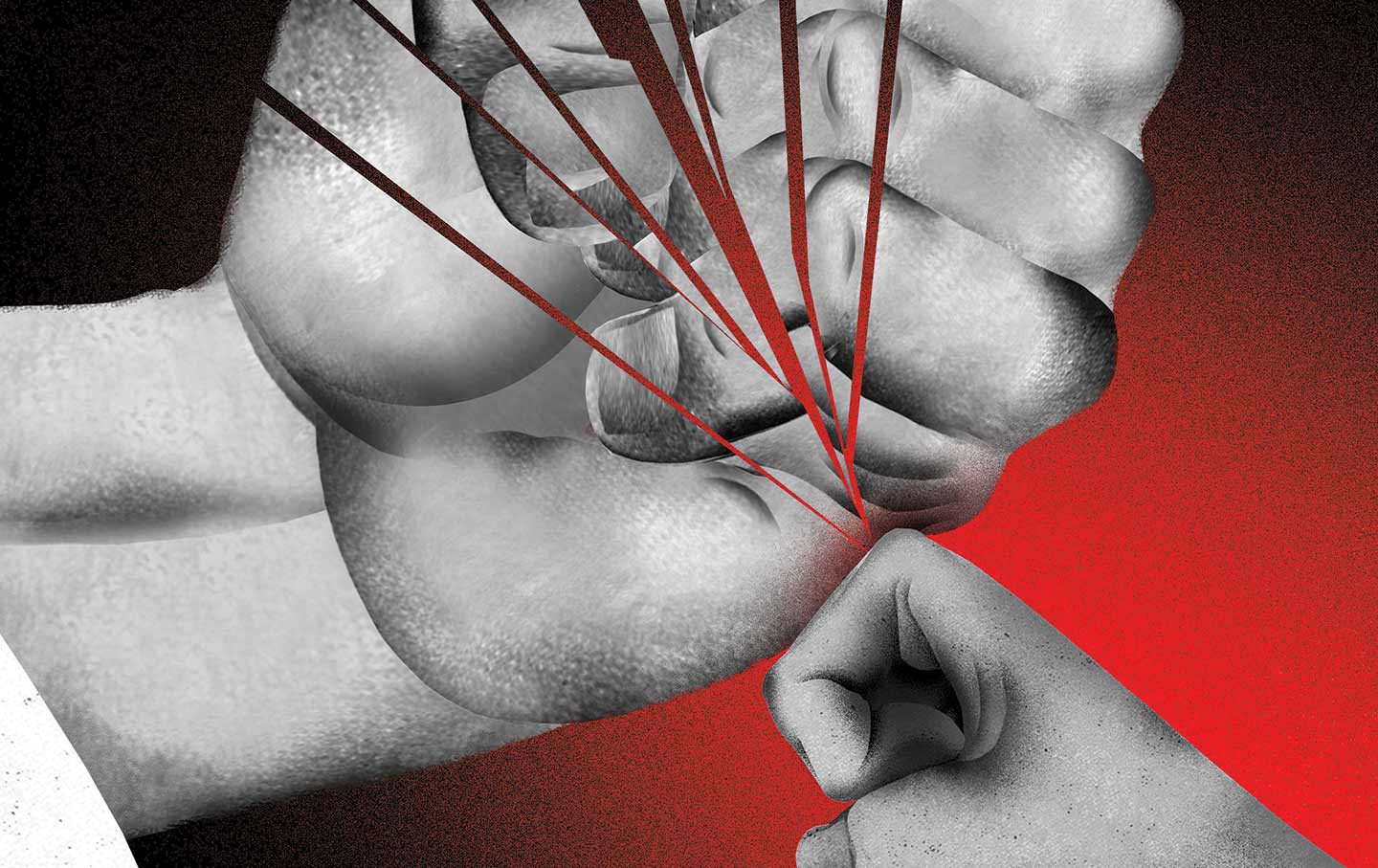
Honoring the Progressives Fighting for Our Democracy Honoring the Progressives Fighting for Our Democracy
These activists and artists, pastors, and political leaders know what has always been true: The people have the power.
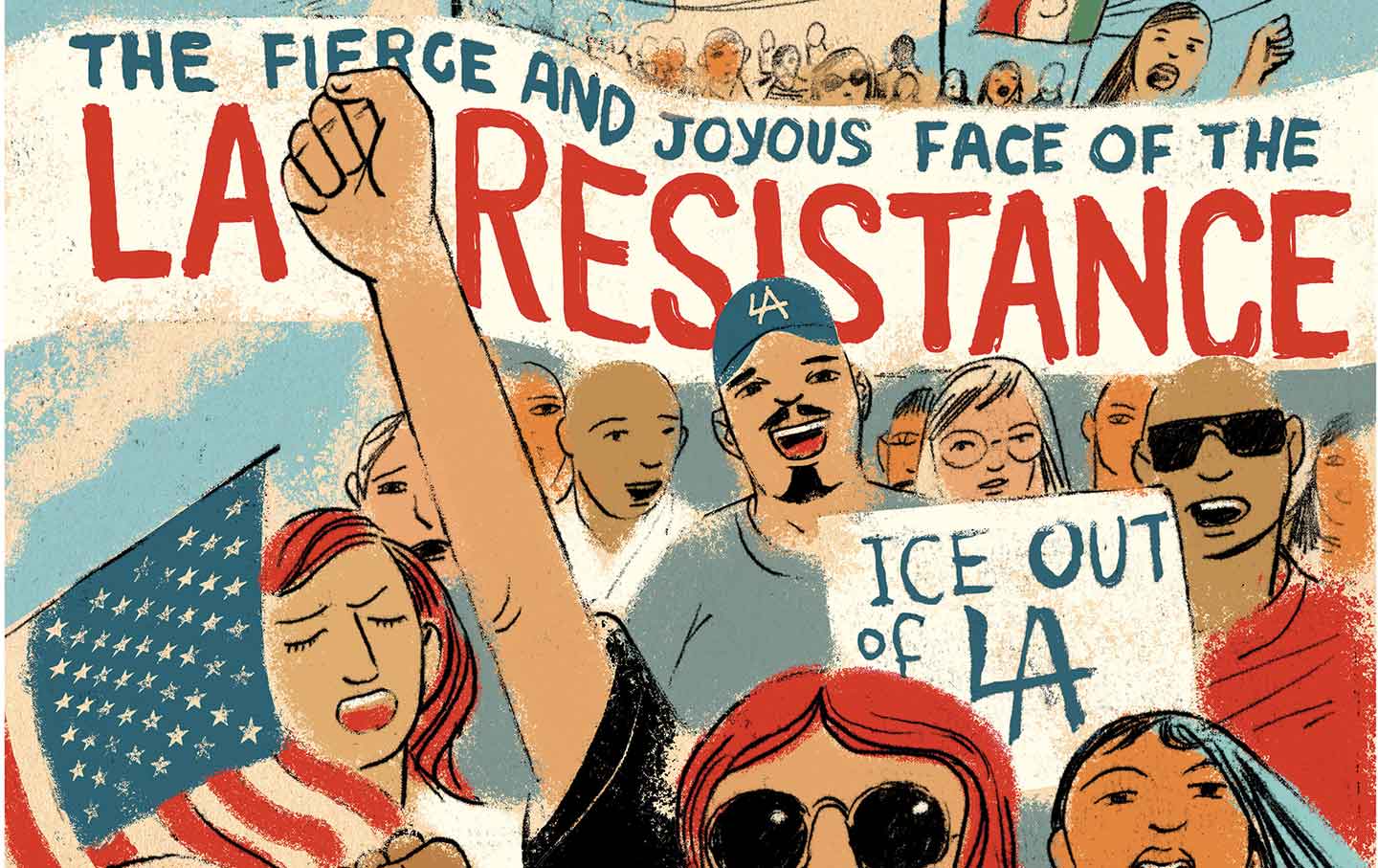
The Fierce and Joyous Face of LA Resistance The Fierce and Joyous Face of LA Resistance
What we can learn from a great American city’s refusal to bend to Trump’s invasion.
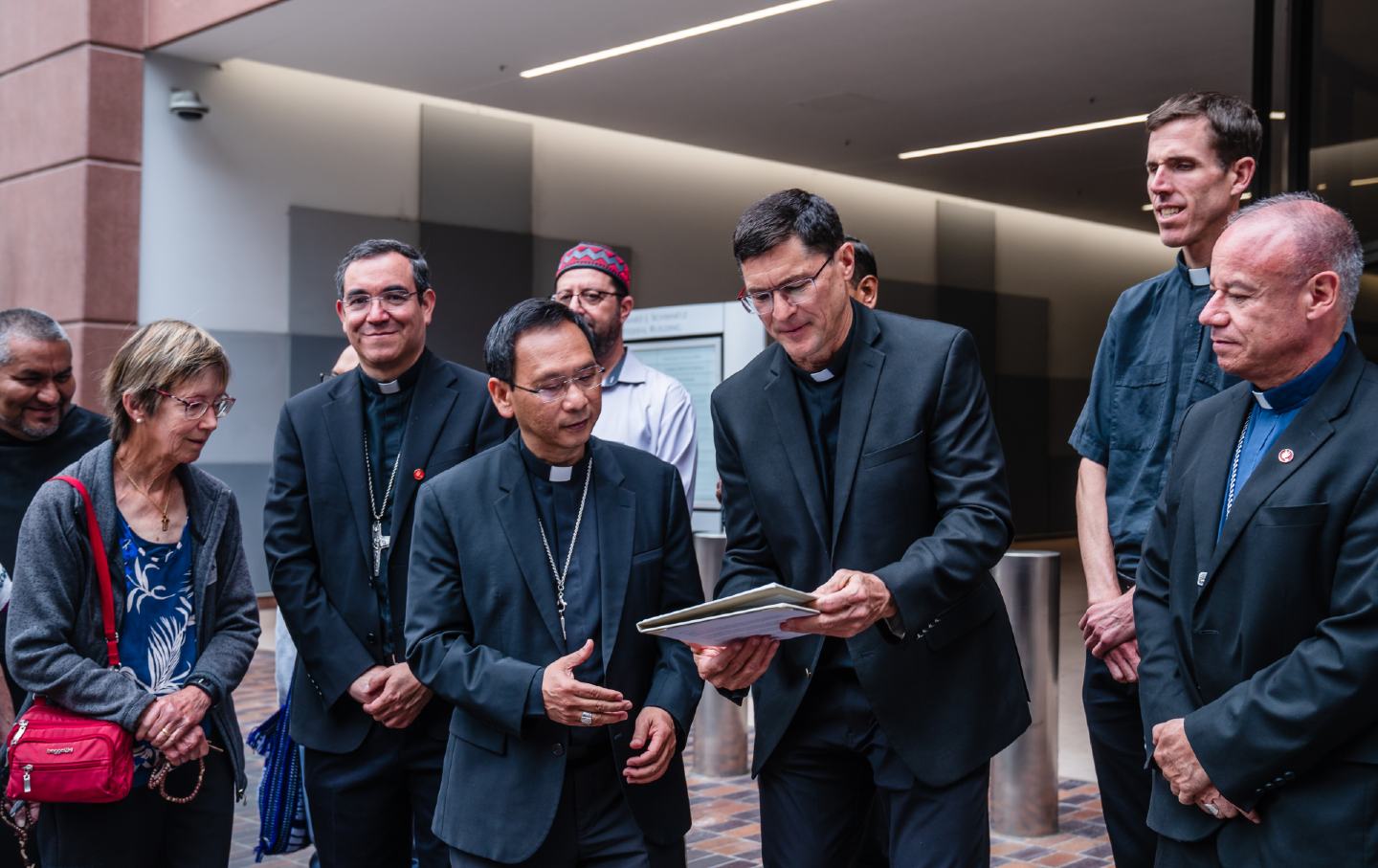
San Diego’s Clergy Offer Solace to Immigrants—and a Shield Against ICE San Diego’s Clergy Offer Solace to Immigrants—and a Shield Against ICE
In no other US city has the faith community mobilized at such a large scale to defend immigrants against the federal government.
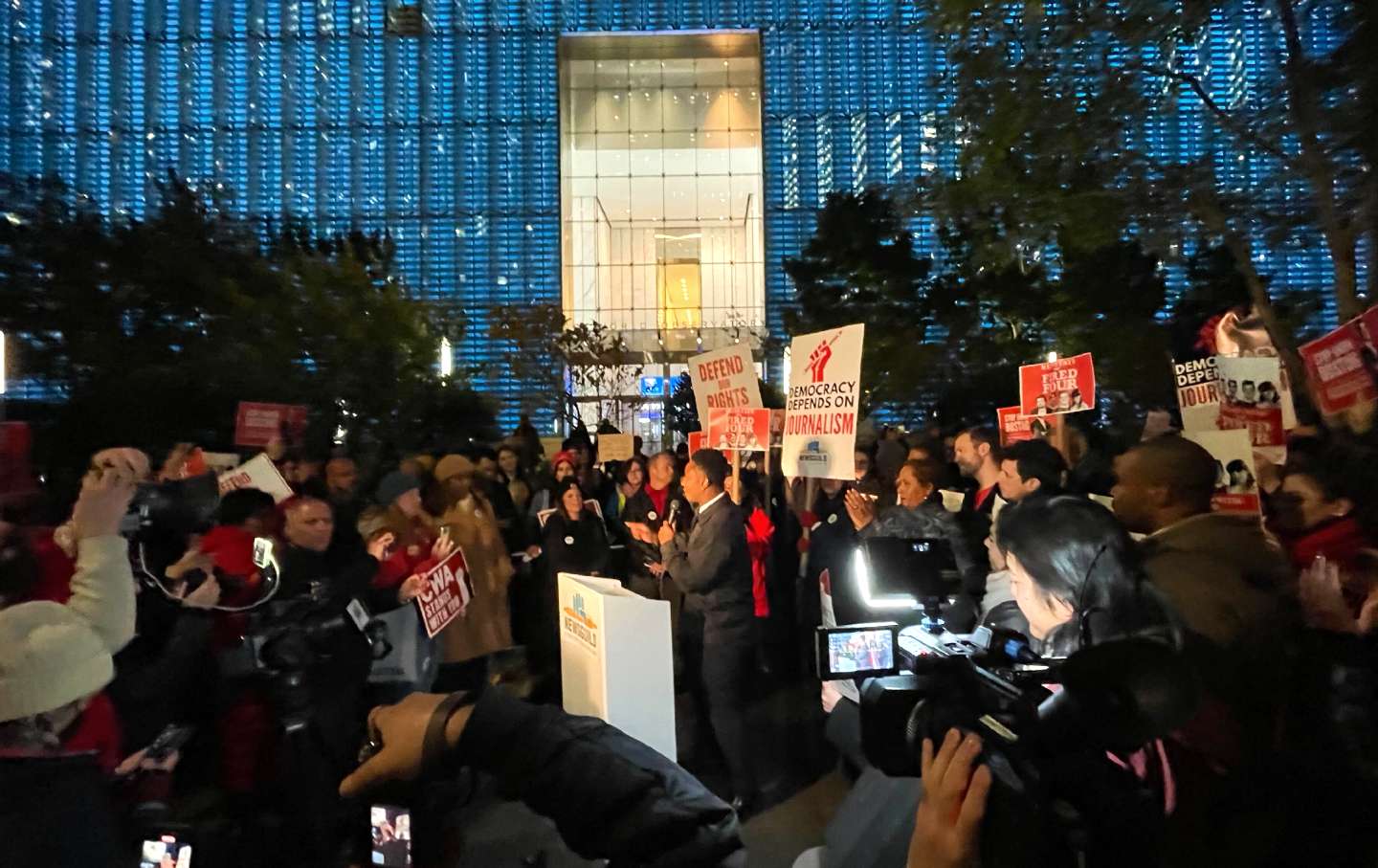
If Condé Nast Can Illegally Fire Me, No Union Worker Is Safe If Condé Nast Can Illegally Fire Me, No Union Worker Is Safe
The Trump administration is making employers think they can ignore their legal obligations and trample on the rights of workers.
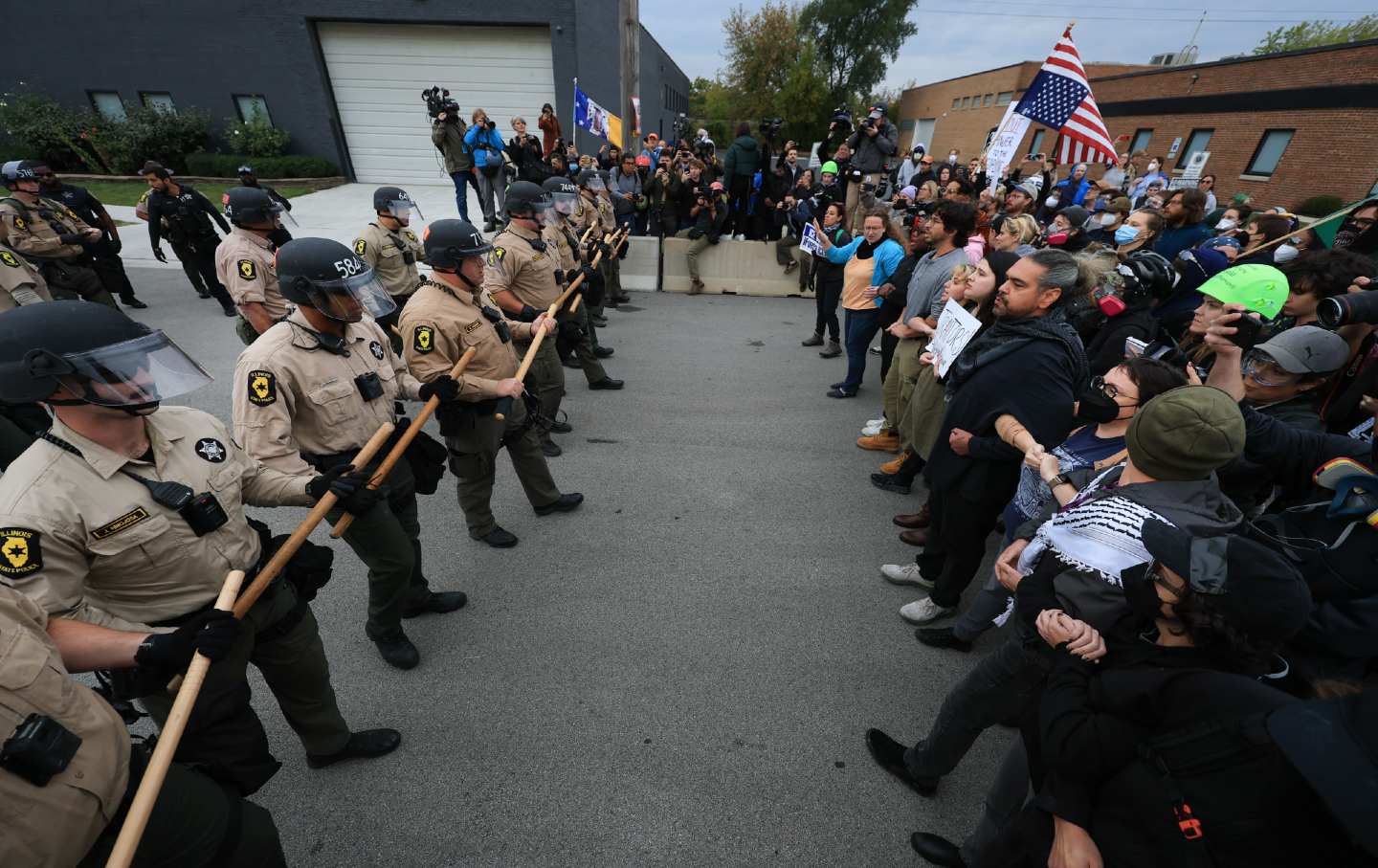
The Counteroffensive Against Operation Midway Blitz The Counteroffensive Against Operation Midway Blitz
How Chicago residents and protesters banded together against the Trump administration's immigration shock troops.


